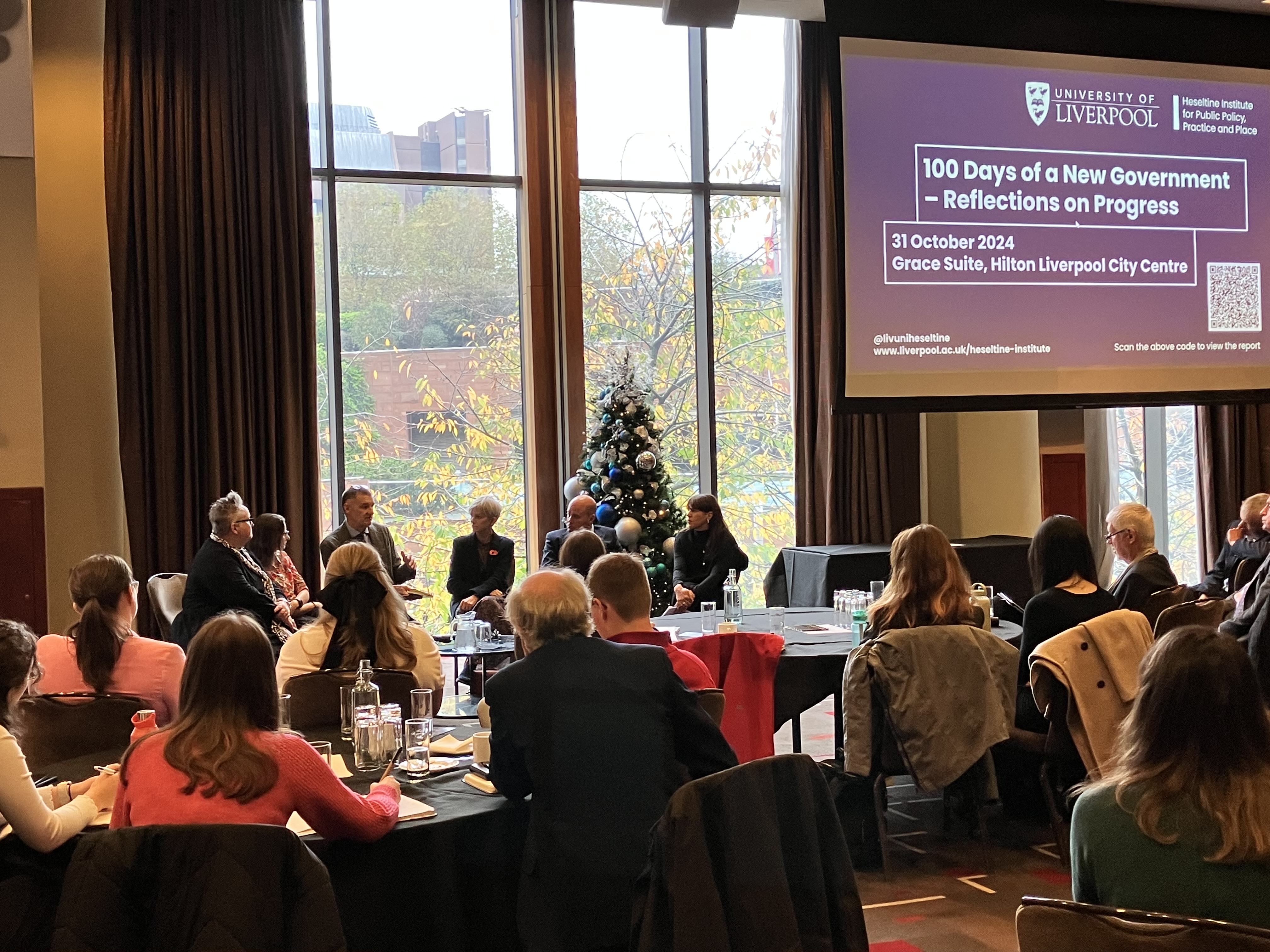The University of Liverpool's Heseltine Institute for Public Policy, Practice and Place have published a series of expert interventions setting out the progress made by the Labour government during its first 100 Days in office.
The day after the Budget, (Thursday 31 October) a panel of key figures from across the city region engaged with critically important policy areas set out in the publication through a lively, informative discussion, chaired by Heseltine Institute Co-Director Professor Catherine Durose.
Reacting to the Budget, Liverpool City Council Leader, Councillor Liam Robinson, praised announcements such as increased funding for public services and ending non-dom tax status. He suggested these are policies Labour voters would have expected. Councillor Robinson further stated that there could be many positive opportunities for the Liverpool City Region in the upcoming Comprehensive Spending Review and English Devolution Bill.

Kirsty McLean, Executive Director of Public Sector Innovation at the Liverpool City Region Combined Authority, suggested that the Government was moving in the right direction on devolution with the announcements on integrated settlements for Combined Authorities. She said that looked forward to more detail in this area moving forward.
Beyond the Budget, Professor Louise Kenny, Executive Pro Vice Chancellor of the Faculty of Health and Life Sciences at the University of Liverpool, suggested that there was a lot to admire from the Government's first 100 days. However, she sounded a note of caution against "warm words" from the Government which failed to consider the extent of spatial inequalities across the UK. Professor Kenny stressed that, for example, investment in health research is still heavily focused on London and the South East and many parts of government were still not aligned with the extent of this challenge.
On policies that should have received more focus from the Government so far, Rev Canon Ellen Loudon, Director of Social Justice for the Diocese of Liverpool, cited child poverty as a central policy issue which needed urgent attention. The panel broadly agreed with Professor Kenny suggesting that "Dickensian" levels of UK poverty have become normalised in the last 15 years.
Turning to housing, Nick Walkley, Principal and UK President at Avison Young, highlighted the need for focus on ending homelessness and for policy to reflect changes in real estate markets following the Covid-19 pandemic.
When asked what the Government would be judged on at the next election the panel responded with a broad range of areas such as the NHS and economic growth.
The discussion was influenced by 100 Days of a New Government: Reflections on Progress. This publication built upon the success of the Manifesto for Liverpool City Region, published by the Heseltine Institute in March, which helped to highlight some of the key challenges facing local and national policymakers before the general election.
In the foreword of 100 Days of a New Government Vice Chancellor of the University of Liverpool, Professor Tim Jones said: "This report again highlights our position at the leading edge of policy analysis, the depth of knowledge and insight available across the university, as well as the role that the university can (and must) play in helping to shape local and national policy agendas with high-quality evidence."






